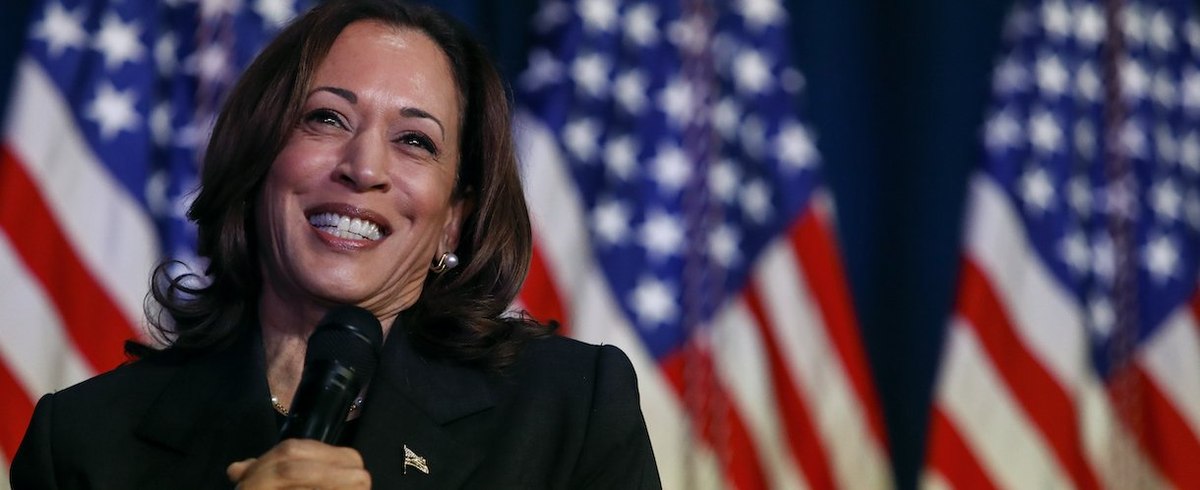YouGov polled seven battleground states – Arizona, Georgia, Michigan, Nevada, North Carolina, Pennsylvania, and Wisconsin – between August 23 and September 3 for The Times and SAY24, a joint project of Stanford, Arizona State, and Yale Universities.
The poll shows the gains Vice President Kamala Harris has made on President Biden's position when we last polled these states in early July, a week before Biden's withdrawal from the race. Trump led in each state in July, by margins of between 1 percentage point and 7 percentage points. Now Harris leads in four of the states (Nevada, Michigan, Wisconsin, and Pennsylvania) and trails in the other three by 2 points or less (North Carolina, Georgia, and Arizona).
If the leads in these states hold up and the remaining states vote the same way they did in 2020, then Kamala Harris would narrowly win the electoral vote. But Harris' lead over Trump in each of the seven states is within the margin of sampling error for the polls.
There are Senate races in Arizona, Michigan, Nevada, Pennsylvania, and Wisconsin this year. In each state a Democrat holds the seat now; two are open races and three seats are being defended by incumbent Democrats.
Democratic Senate candidates are outperforming Harris in her race for president. In each state the Democratic candidate is running ahead of Harris by between 2 and 6 points, though not by as much as they were running ahead of Biden in July: between 5 and 12 points.
Each Democrat is leading their Republican opponent by a comfortable margin of at least 8 points among people who intend to vote.
Voters in three of the seven states think Harris will win their state; in three others, Trump is seen as the more likely winner. In Michigan, 46% think Harris will win while 33% think Trump will. At the other end of the spectrum, 54% in North Carolina think Trump will win and 24% think Harris will. In each of the six states, the candidate who is leading is the one more voters expect to win. Voters in Nevada, where Harris leads, are split: 40% say Harris will win and 41% think Trump will. In July, Trump was seen as the more likely winner in each of the seven states; in each of the states fewer than 40% thought Biden would win the state.
Despite the improvement in poll numbers for the party controlling the White House, views of the economy remain pessimistic. In each state, voters are at least twice as likely to say they are worse off financially than a year ago, than to say they are better off. In each state, the issue of inflation/prices is the one the most voters name as their most important. Expectations are low for economic improvement. In each state the share who think the national economy is getting worse far outnumber the share who think it’s getting better, and the same goes for each state’s economy.
Methodology: The surveys were conducted between August 23 - September 3, 2024 for The Times and the SAY24 project for Stanford, Arizona State, and Yale Universities. The sample size for each state was 1,000, except in Arizona and Wisconsin (where it was 900) and Nevada (where it was 800). These were recontacts of respondents who were interviewed in July for the SAY24 project. This sample was weighted according to gender, age, race, and education based on the U.S. Census American Community Survey, and the U.S. Census Current Population Survey, as well as 2020 Presidential vote and partisan identification. Respondents were selected to be representative of registered voters living in each state. The margin of error for a percentage based upon the entire sample in each state survey is between approximately 3% and 5%. The margin of error is larger for subsamples and differences of percentages.
Image: Getty













